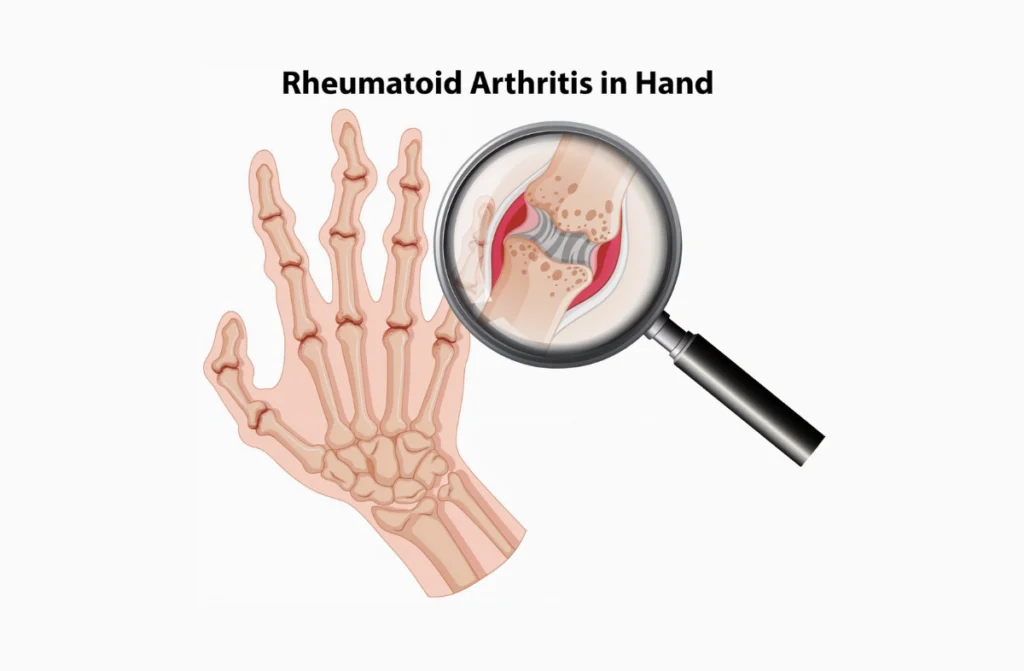Rheumatoid arthritis (RA) can be a painful and challenging condition to live with, but finding the best treatment for rheumatoid arthritis can make a huge difference in managing symptoms and improving quality of life. Whether you’re newly diagnosed or have been managing RA for years, understanding the various treatment options is crucial. In this blog, we’ll explore what rheumatoid arthritis is, its causes, symptoms, and, most importantly, the best pain relief for rheumatoid arthritis.
What is Rheumatoid Arthritis?
Rheumatoid arthritis is an autoimmune disease that causes chronic inflammation in the joints. It occurs when your immune system mistakenly attacks your body’s own tissues, primarily affecting the lining of your joints. This can lead to pain, swelling, stiffness, and, over time, joint damage. RA commonly affects the hands, wrists, and knees, but it can also impact other parts of the body, such as the skin, eyes, and lungs.

Symptoms
The symptoms of rheumatoid arthritis can vary from person to person, but some of the most common symptoms include:
- Joint Pain and Swelling: This is the most common symptom and often begins in smaller joints like the fingers and toes.
- Stiffness: Morning stiffness is a hallmark of RA and can last for hours.
- Fatigue: RA can cause general fatigue and a feeling of weakness.
- Fever: Low-grade fever is common when RA flares up.
- Loss of Appetite: Inflammation and pain can affect your appetite.
- Symmetry of Symptoms: RA typically affects joints on both sides of the body equally.
Identifying these symptoms early can help ensure that you receive the best treatment for rheumatoid arthritis pain as soon as possible.
Causes
The exact cause of rheumatoid arthritis is unknown, but several factors can increase your risk of developing the condition:
- Genetics: A family history of RA can increase your likelihood of developing the disease.
- Hormones: RA is more common in women, possibly due to hormonal factors.
- Smoking: Cigarette smoking is a known risk factor for RA.
- Obesity: Being overweight can increase your risk of developing RA and make symptoms worse.
Understanding these causes can help you take proactive steps in preventing or managing RA symptoms, along with finding the best pain relief for rheumatoid arthritis.
Diagnosis
Diagnosing rheumatoid arthritis early is key to receiving the best natural treatment for rheumatoid arthritis. Your doctor will likely conduct a physical exam, looking for swelling, tenderness, and warmth in your joints. They may also order tests such as:
- Blood Tests: RA can be diagnosed with blood tests that check for elevated levels of inflammation or certain antibodies, like rheumatoid factor (RF) or anti-cyclic citrullinated peptide (anti-CCP).
- Imaging Tests: X-rays, MRIs, or ultrasounds can help doctors see how much damage has occurred in your joints.
With the right diagnosis, your healthcare provider can guide you toward the best treatment for rheumatoid arthritis pain.
Surgery
In severe cases where other treatments fail, surgery may be an option to relieve pain and restore joint function. Common surgical procedures for RA include:
- Joint Replacement: Damaged joints, especially knees and hips, can be replaced with artificial ones to improve mobility.
- Tendon Repair: Tendons around joints may become loose or damaged due to inflammation. Surgery can help repair them.
- Joint Fusion: In some cases, fusing the joints may be the best option to stabilize them and reduce pain.
While surgery can offer significant relief, it is generally considered when other forms of the best natural treatment for rheumatoid arthritis have not been effective.
Best Treatment for Rheumatoid Arthritis
When it comes to finding the best treatment for rheumatoid arthritis, a combination of medication, lifestyle changes, and physical therapy can help manage symptoms and improve quality of life. Here are some common treatments:
- Medications: Nonsteroidal anti-inflammatory drugs (NSAIDs), corticosteroids, and disease-modifying antirheumatic drugs (DMARDs) are commonly prescribed to reduce inflammation and slow disease progression.
- Physical Therapy: Gentle exercises can help strengthen the muscles around the joints, improving flexibility and reducing pain.
- Lifestyle Changes: Maintaining a healthy weight, quitting smoking, and reducing stress can all contribute to managing RA symptoms.
For those seeking alternative approaches, the best natural treatment for rheumatoid arthritis may include dietary changes, acupuncture, or yoga, but always consult a healthcare provider before trying new treatments.
Living with Rheumatoid Arthritis
Living with rheumatoid arthritis can be challenging, but there are ways to manage the disease and maintain a good quality of life:
- Rest: It’s important to balance activity with rest to avoid over-exerting your joints.
- Exercise: Low-impact exercises like swimming or walking can improve mobility and reduce stiffness.
- Healthy Eating: A balanced diet rich in anti-inflammatory foods like fruits, vegetables, and omega-3 fatty acids can help reduce inflammation.
- Support: Don’t hesitate to seek support from family, friends, or support groups. It can make living with RA easier.
Managing your lifestyle along with the best treatment for rheumatoid arthritis pain can greatly improve your overall well-being.
Side Effects
While the best treatment for rheumatoid arthritis can offer relief, some medications may come with side effects. Common side effects of RA medications include:
- Stomach Upset: NSAIDs can cause stomach irritation and ulcers with long-term use.
- Weight Gain: Corticosteroids, while effective in reducing inflammation, can lead to weight gain and other side effects.
- Increased Risk of Infections: Some medications that suppress the immune system can make you more vulnerable to infections.
Always discuss potential side effects with your healthcare provider before starting any new treatment.
Complications
If left untreated, rheumatoid arthritis can lead to several complications:
- Joint Damage: Over time, RA can cause permanent damage to the affected joints, making movement difficult.
- Heart Disease: Chronic inflammation can increase your risk of heart problems, including heart attacks.
- Lung Problems: RA can sometimes lead to lung diseases such as interstitial lung disease.
Getting the best treatment for rheumatoid arthritis early can help prevent these complications and improve your overall health.
Prevention of Rheumatoid Arthritis
Preventing rheumatoid arthritis involves proactive measures to reduce risk factors and protect joint health. While genetics play a role, lifestyle choices can minimize its onset or severity.
- Maintain a Healthy Lifestyle: Regular exercise and a balanced diet support overall joint health.
- Avoid Smoking: Smoking increases the risk of developing rheumatoid arthritis.
- Manage Stress: Stress can exacerbate inflammation, so practice relaxation techniques like yoga or meditation.
- Stay Informed: Early detection of symptoms like joint stiffness or swelling allows timely intervention.
- Protect Your Joints: Use proper techniques during physical activities to prevent undue stress on joints.
For individuals looking for the best treatment for rheumatoid arthritis pain, prevention strategies combined with medical advice can lead to long-term relief and improved quality of life.
Natural Treatment for Rheumatoid Arthritis
Natural treatments for rheumatoid arthritis focus on reducing inflammation and managing pain without medication.
- Dietary Adjustments: Include anti-inflammatory foods like fatty fish, turmeric, and green leafy vegetables.
- Exercise and Yoga: Gentle stretching improves flexibility and reduces stiffness.
- Herbal Remedies: Ginger and Boswellia may alleviate joint pain and swelling.
- Heat and Cold Therapy: Heat relieves stiffness, while cold reduces swelling.
- Acupuncture: Stimulates nerves and reduces pain naturally.
For those seeking the best natural treatment for rheumatoid arthritis, combining these methods with professional guidance ensures effective and holistic care.
Conclusion
If you’re seeking the best treatment for rheumatoid arthritis, it’s important to explore all your options. From medications to lifestyle changes and physical therapy, there are many ways to manage RA and live a fulfilling life. For expert care and guidance on the best pain relief for rheumatoid arthritis, contact CTS Hospital today. They provide personalized treatment plans that can help you regain control of your health.
